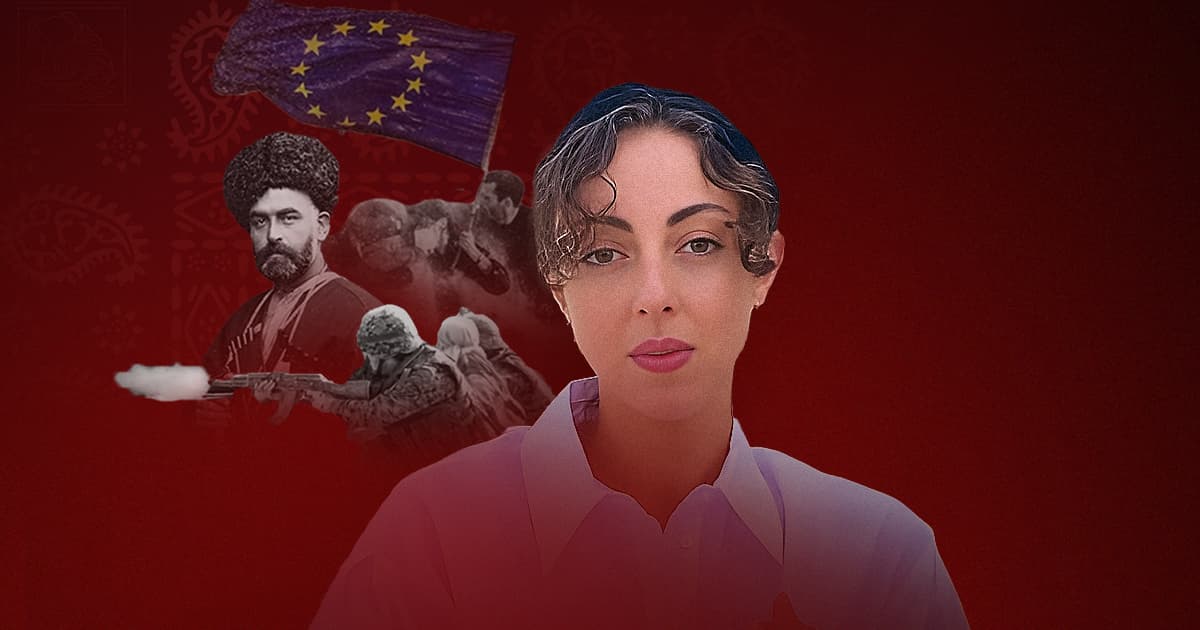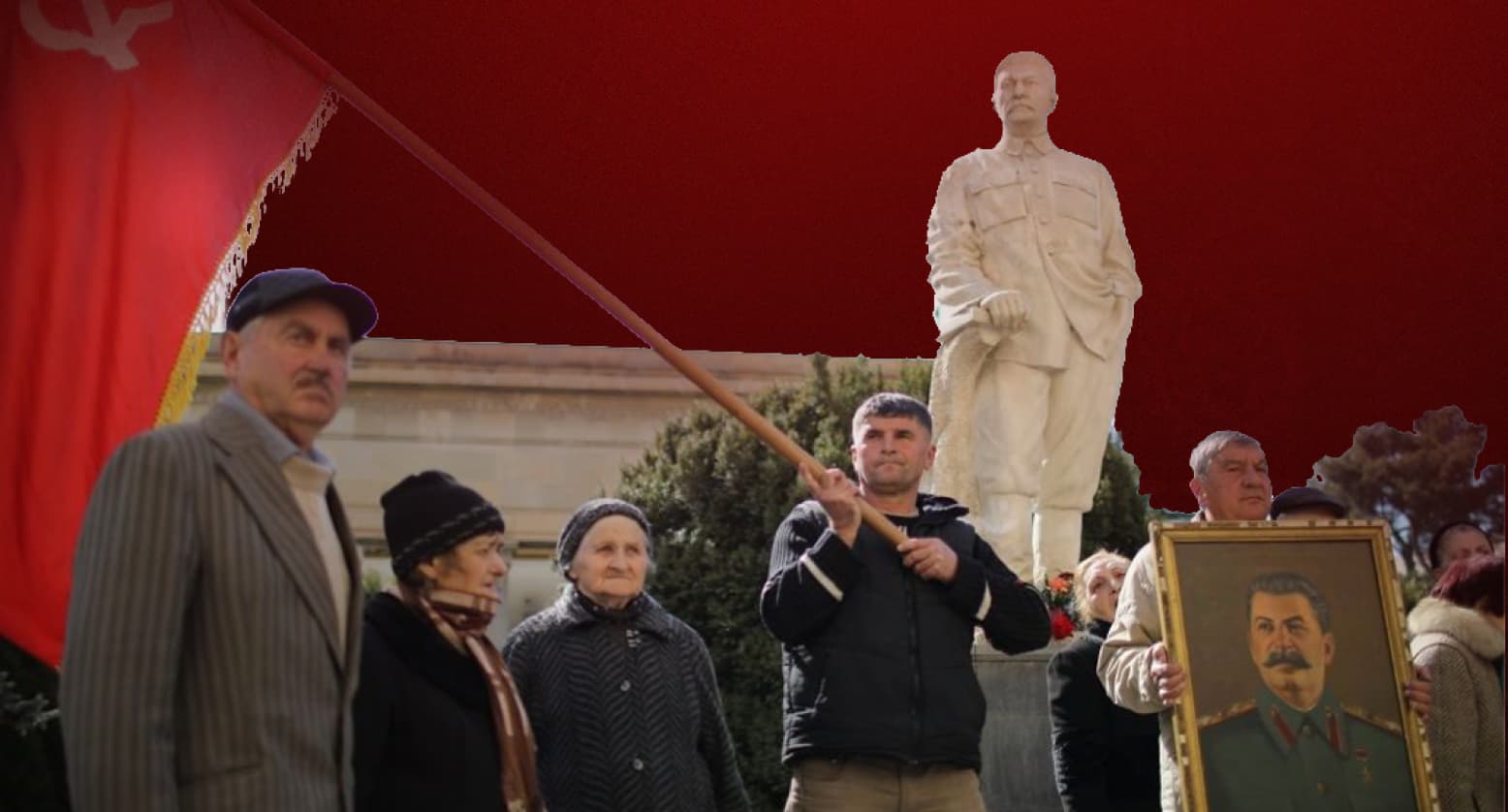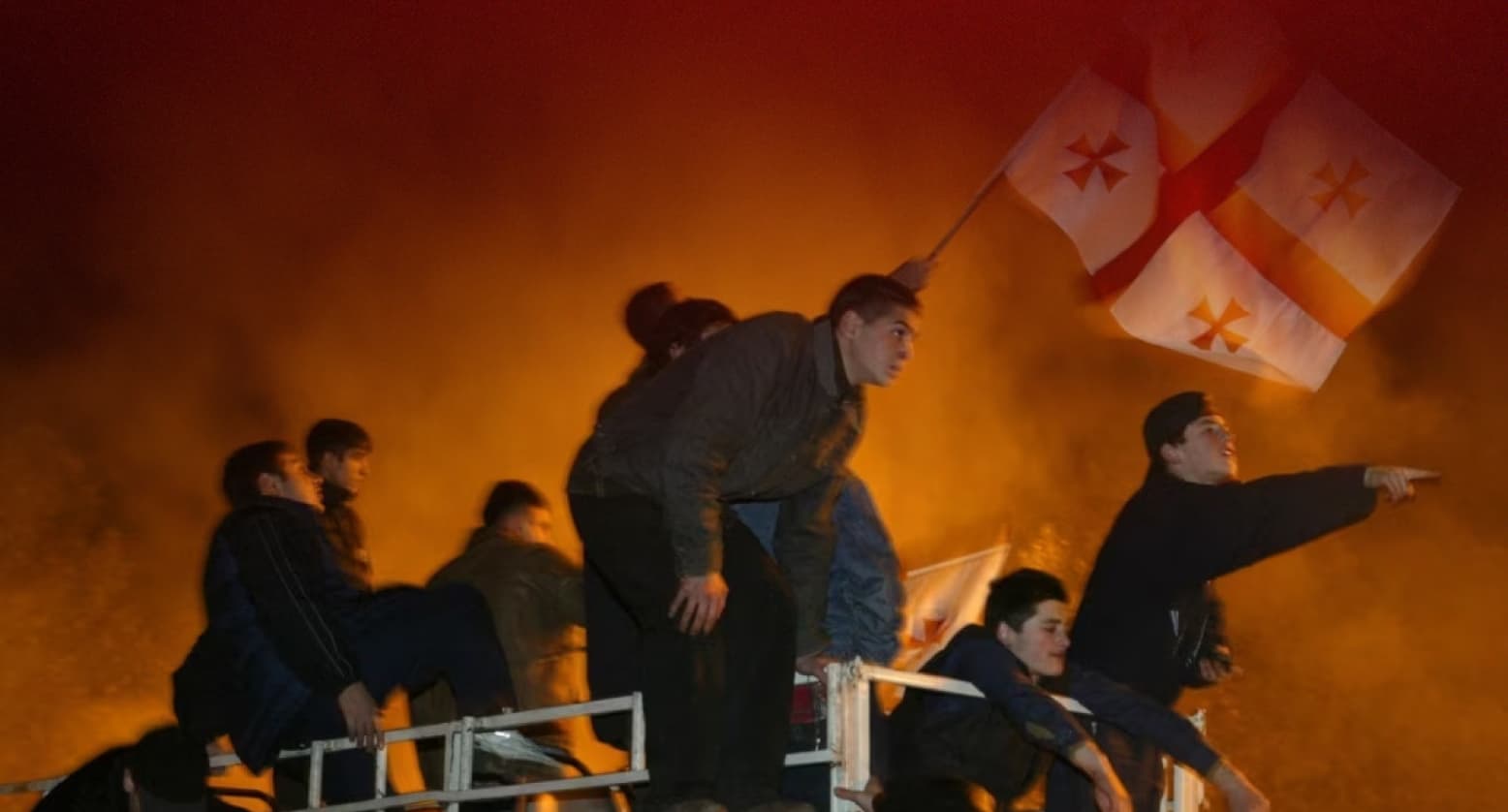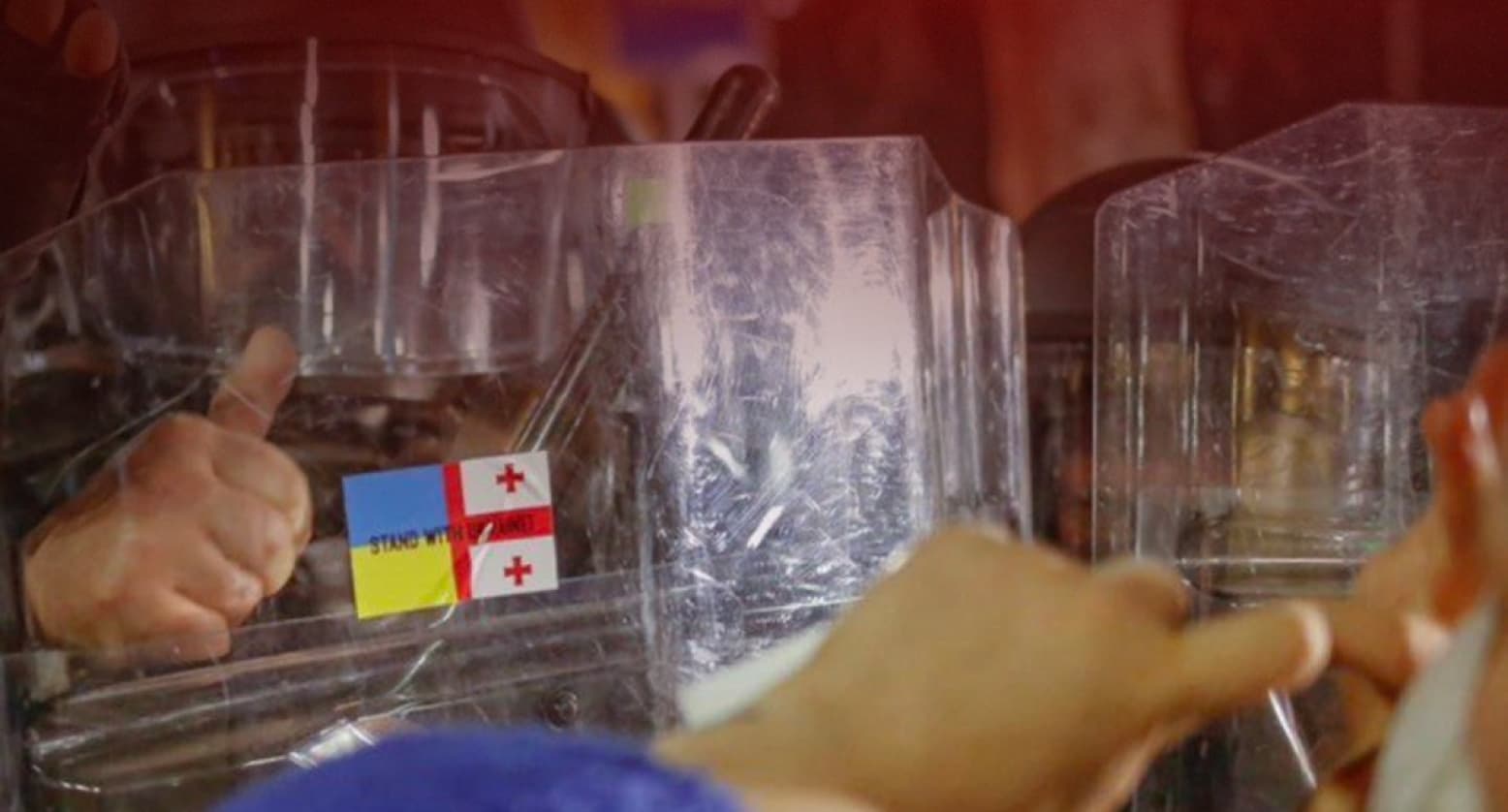“Georgia cannot be a neutral country. We are either under Russian influence or part of European civilisation,” — Megi Kartsivadze

Last century, Georgia was occupied by the Russian Empire and the Soviet Union. After restoring independence in 1991, a war with Abkhazia broke out. As a result, about 4 000 people from the Abkhaz side and 12 000 — 15 000 from the Georgia side were killed. In 2008 Russian-Georgian war started, after which Russia occupied Abkhazia and South Ossetia.
Currently, Georgia wants to become a part of the Euro-Atlantic community. Recent actions by the government and parliament, including an attempt to pass a draft law on 'foreign agents', have led to mass protests in Tbilisi.

How USSR and later Russia did influence the culture and language of Georgia?
The Soviet influence on the Georgian culture is enormous, and the Soviet heritage still exists. The problem is that few attempts to provide a new memory policy about the Soviet heritage weren’t implemented.
I am exploring Georgian Stalinism because the personality of Stalin is particularly problematic for Georgians’ collective memory. Nowadays, people who admire him aren’t necessarily communists or nostalgic for the Soviet Union.
For them, Stalin was a Georgian guy who led half of the world and won the Second World War. He is the most problematic personality for the collective memory because Stalinism is still firmly rooted in Georgian culture.
I researched history textbooks written before and during Stalin’s leadership. There is archive evidence that Stalin personally was related to developing history books where the Georgian national narrative was formed on Stalin’s narrative.
It kept going after the dissolution of the Soviet Union. The government of Georgia tried to deal with the Soviet legacy but could not entirely free the culture and national historical narratives from Soviet influence completely. Even these days, we feel the impact of the Soviet Union that Russia uses trying to spread nostalgia for the USSR.
The main narrative is the territorial integrity of Georgia was secured, Georgians were honoured, and culture and language were respected during Soviet times.
After the Soviet dissolution, nobody allegedly wasn’t interested in Georgian culture, and the West tried to change the national identity and spread “LGBT propaganda”.
Russia tries to use connections between culture and national identity with the Soviet heritage as a weapon and share the idea of our [Georgian — ed.] staying under Russian leverage.
What changes have occurred in the politics of memory since Georgia became an independent country?
The more dynamic changes in the politics of memory were after the Rose Revolution (peaceful protests in 2003, which were caused by dissatisfaction with the policies of President Eduard Shevardnadze. The symbol of the protests was the rose. After the revolution, the then-president resigned, and Mikheil Saakashvili came to power — ed.)
The united national government tried to construct the leading idea that Georgia had been under Russian occupation for 200 years — first as part of the Russian Empire, then the Soviet Union.
This idea was particularly actual after the war in 2008 because of the current Russian occupation, which was an extension of the Bolsheviks’ and Russian Empire’s occupation.
There is a Museum of the Soviet Occupation in Tbilisi built in the early 2000-s. The first thing you can see is a video with Medvedev and Putin walking together. There is footage of the Russo-Georgian War in 2008. The museum attempts to show a link between Russian occupation and the Soviet heritage. The other essential event after the Soviet Union's dissolution was removing a monument to Stalin in Gori, his homeland. The government dismantled the monument secretly at night and caused protests among locals. Some people still demand a restoring the statue.
There were a few attempts to change history books by removing an ethnocentric nationalist narrative spread in the Soviet Union. But the government faced criticism from some historians who got their education in the USSR.
Trying to remove ethnocentrism from the national narrative, you face resistance from historians who sense it as a betrayal of the nation (because of the cult of Stalin - ed.).
Currently, this ethnocentrism manifests itself through far-right and religious movements. They, as a rule, are aggressive and do xenophobic and homophobic actions. Another issue is the mass grave of victims of the Soviet repressions was found in Adjara in 2019. Since then, public organisations have been demanded to build the Memorial complex. But till nowadays, nothing has changed.
Additionally, there is a problem with the religious question. A large (nearly 39% — ed.) number of Muslim communities exist in Adjara. Possibly the part of victims of the repressions were Muslims. There is a discussion on how to honour the bodies: by the Christian or Muslim tradition.

What differs from the perception of the past by the young generation?
Social surveys demonstrate a difference between generations. Older people (from 55 years — ed.) attitude toward the Soviet past more favourably and has some nostalgia for the Soviet Union.
The problem is that there are also local differences. For example, in the regions where ethnic communities live - Azeris and Armenians - they have a more positive attitude towards the Soviet past than in the areas inhabited by the Georgians. (In 2021, 67% of Armenians believed the collapse of the USSR had a negative impact, while about 38% of Georgians thought the same – ed.)
In addition, Russian propaganda still works. The older generation [Georgians — ed.] fluent in Russian watches the Russian news more often than the young generation.
At the same time, it is hard to find people from the younger generation who supports Stalin. It gives hope we can deal with Russian heritage.
What impact does Russia have on Georgia right now? We see a pro-Russian parliament. But at the same time majority, including the President, is pro-Eorupean.
It is hard to say how exactly Russia influences the current government of Georgia. However, based on decisions made by the government, as a resolution about foreign agents, we can only assume.
Some say claiming the government's “Georgian dream” [a leading party] as pro-Russian is incorrect. They took some steps toward European integration.
It depends on what pro-Russian and anti-European means to us. For me, Europeanness means we want all those democratic institutions as in Europe.
If Georgia refuses to be a real democracy, it will throw away its European way and stay under Russian influence. Georgia can’t be a neutral country. We are either under Russian influence or part of European civilisation.
The “Georgian dream” does some things that cause particular problems on its Euro-Atlantic path (The Diplomatic Service of the European Union claimed a low draft about foreign agents opposes the values and standards of the EU and the declared goals of Georgia about EU membership — ed.)
For me, this proves that the current government is anti-European and pro-Russian. Saing pro-Russian, I don’t mean they receive direct calls from Putin. For me, antidemocracy and anti-European actions are sufficient arguments to claim the “Georgian dream” as the pro-Russian party.
What impact does the Russo-Ukrainian War have on Georgia?
The beginning of the war in Ukraine in 2014 sparked the Georgians’ collective memory. All wounds of the war in 2008 were opened again.
People felt the fear, anxiety and disappointment that they experienced in 2008. So that Georgian society, autonomously of the government, mobilised around the Ukrainian question.
Even today, after a year, Georgians can associate with this war and perceive it as their own. And our people are fighting as volunteers (since 2014, Georgian volunteers have been fighting in Ukraine as part of the Georgian Legion, which has been officially part of the Armed Forces of Ukraine since 2016 — ed.)
The recent events in Georgia proved this. The law on foreign agents was the last straw. Even though the situation has calmed down now, it is not over.
There is a coming election in Georgia in 2024. But the tension in society will take place till that time. The whole situation reminds Euromaidan. I don’t think there will be the same scenario as in Ukraine, but I see similarities from a public opinion point of view.

Is the idea of liberating the occupied territories widespread among the public?
Most are against returning the territories by military means. Georgia’s residents have already survived the war in Abkhazia and Ossetia. Moreover, the social consensus is that returning these territories by force will complicate people's integration.
You must find a common language to live with them in one country. Today it seems impossible, but Russia is turning to weak.
It is inevitably losing the war. After that, we will have more chances to negotiate with the Abkhazians and Ossetians because they will lose support from Russia. If we do not abandon the European path, we will have a prospect to attract them back.
Georgia’s parliament abolished a law about foreign agents. But will it be enough?
The protest continues even if we don't see people on the streets. We should expect more protests and demonstrations in Georgia throughout the year, especially as the elections approach.
Opinion polls demonstrate support for the “Georgian Dream” is up to 30%, and it is decreasing (in November 2022, 25% of Georgians would vote for the party if the elections were held next Sunday, while 30% of respondents said they would not vote for this party in any case. In February 2023, polls showed that 12% of citizens were satisfied with the work of the parliament, 31% were not — ed.)
The main problem is that opposition in Georgia is weak and incomplete, and the political atmosphere is polarised. No party could be an alternative, so changing the government will be tough.
But the law about foreign agents removed the “Georgian dream”’s masks. For people who supported them, the anti-Europeaness of the party turned out obvious.
A coalition government of opposition political parties is the most realistic scenario. Differently, the only option is a revolution.
Georgians don’t want to back to the Russian sphere of influence. On the contrary, public opinion polls prove that: 81% of Georgians support the Ukrainian EU membership, and 73% support Ukraine’s joining NATO.


